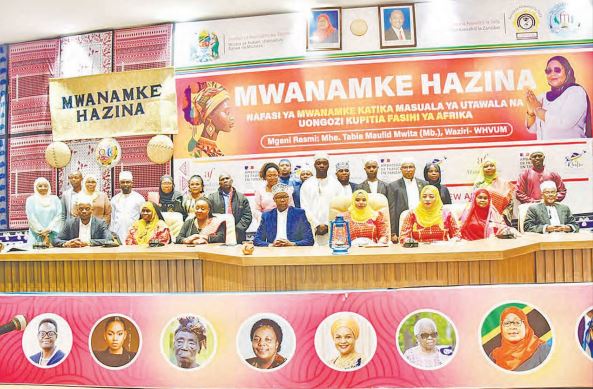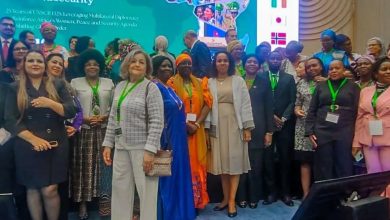Minister urges writers to portray women as development drivers

ZANZIBAR: ZANZIBAR Minister of Information, Youth, Culture and Sports, Ms Tabia Maulid Mwita, has called on writers and literary artists to highlight the role of women as key agents of development in society.
Speaking on her behalf, Ms Fatma Hamad Rajab delivered the message during a public forum titled Mwanamke Hazina (A Woman is a Treasure), held on Monday to commemorate World Kiswahili Language Day.
Ms Rajab said that women are increasingly asserting themselves in politics, business, and other spheres of influence, and called for literature that reflects their growing impact.
“Women have become catalysts of change, transforming communities through action, courage, and determination,” she said.
She stressed the importance of recognising women’s contributions to economic, political, and cultural development, particularly through African literature and encouraged more inclusive narratives that celebrate these achievements.
The forum also served as a space to reflect on the historic and ongoing challenges faced by African women, including the erosion of dignity and humanity through social and structural injustices.
However, it also recognised women’s central role in preserving and promoting the Kiswahili language.
“When a child is born, the mother becomes the first teacher, nurturing and teaching through Kiswahili,” Rajab said, encouraging women across the country to rise, pursue their dreams, and continue shaping the future.
She added that women are not only the first educators of language but also the primary caregivers and custodians of cultural values in society.
On her part, the Executive Secretary of the National Kiswahili Council of Tanzania (BAKITA), Ms Consolata Mushi, described the Mwanamke Hazina forum as a significant initiative to honour women’s leadership and community contributions, especially through Kiswahili and African literature.
ALSO READ: Govt reaffirms commitment to invest in Kiswahili
She noted that the event is part of a broader effort to ensure the history, voices, and contributions of women are fully acknowledged and integrated into national development discourse.
“The forum also offers a platform to reflect on progress, address challenges, and devise strategies to increase women’s participation in high-level leadership and decisionmaking,” she said.





